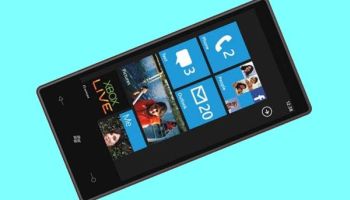Analyst Refutes IDC Windows Phone 7 Prediction

ABI Research has disagreed with IDC’s prediction that Windows Phone 7 is set to become a leading mobile OS
ABI Research has predicted that Google’s Android operating system will rise to command 45 percent of smartphone market share worldwide by 2016.
But it take a very different position to IDC over Windows Phone 7
The market researcher, which said Android accounted for 69 million of the 302 million smartphones shipped in 2010, said the phasing out of Nokia’s Symbian OS over the next two years would leave a share vacuum.
Market Predictions
 Meanwhile Apple’s iOS should command 19 percent market share in 2016, with Research in Motion’s Blackberry falling from 16 percent share in 2010 to 14 percent for 2016.
Meanwhile Apple’s iOS should command 19 percent market share in 2016, with Research in Motion’s Blackberry falling from 16 percent share in 2010 to 14 percent for 2016.
This is owed less to falling Blackberry shipments and more to its relegation to niche status as an enterprise smartphone platform.
Interestingly, ABI also sees Samsung’s Bada platform as more primed to take some of the Symbian share than Microsoft’s Windows Phone 7, which has struggled in the early going with slow sales and misfiring updates, according to eWEEK’s Microsoft Watch blog.
ABI analyst Michael Morgan noted that with 4 million units shipped in 2010, Bada has taken off “very well, very fast,” and may reach 10 percent market share by 2016.
Windows Phone 7
Conversely, Morgan said Windows Phone 7, which shipped 2 million handsets in last year’s fourth quarter, would have to “find incredible success through its Nokia channel to take more than 7 percent of the market by 2016.”
That’s quite a different story from IDC’s market forecast from 29 March.
Similar to ABI, IDC pegged Android at 45 percent share through 2015.
However, IDC said that Windows Phone 7, not Blackberry, iOS or Bada, would take 21 percent market share to fill the void left by Symbian.
That’s how strongly IDC believes in the Microsoft brand and the ensuing partnership to have Nokia build phones with WP7.
Overall, ABI said the smartphone market would see a huge upswing as lower-cost models land to help cost-conscious consumers replace their feature phones. ABI expects the market to grow at a 19 percent compound annual rate through 2016.